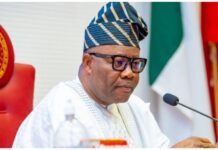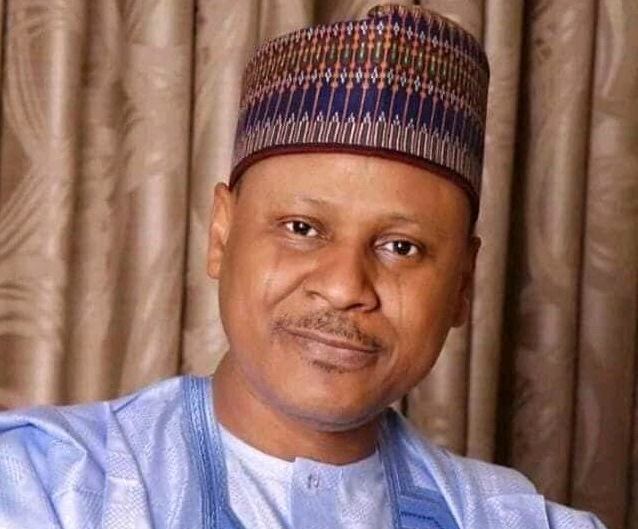The soldiers or better still, the militicians who recently compelled resignations of both Mali’s President Ibrahim Boubacar Keïta and Prime Minister, along with the entire cabinet following a mutiny by some elements in Malian Armed Forces on the 18th of August, had promised to set up a civilian transitional government and hold new elections.
Political observers of the Malian tragicomedy then wonder aloud why in the first instance, overthrowing a legitimate democratically elected government only to feverishly and cowardly reinvent another contraption in place of the original rudely terminated mandate?. If it is not democratically elected, certainly it is not a sustainable government.
This point must be made to the new uniformed men in the saddle in Bamako that no justification for arresting elected officials and compelling resignation at gun points. It’s time all democratic forces in West Africa rose in unison against serial opportunistic usurpations of power which had in turn underdeveloped a sub-region.
Never again should any armed group presides without democratic mandate through periodic elections with all their imperfections. There is certainly no lesson from the landlocked Republic of Mali which had witnessed unhelpful four military usurpations in the past 60 years of its independence.
First was the bloodless military coup of 19 November 1968 against the government of the founding President Modibo Keita led by Lieutenant (later Major General) Moussa Traoré. He was a military , head of state until a counter coup in 1991 ousted him after over two decades of military dictatorship.
The new wave of democratization in West Africa, in the 90s, led to multi-party elections that produced the government of Amadou Toumani Toure who himself was overthrown in another 2012 Malian coup d’état following riots by soldiers , displeased with the management of the Tuareg insurgency which had audaciously attacked several locations in the capital Bamako, including the presidential palace, state television, and military barracks.
The take away from Mali is that addictive coups or lack of sustainable democratic process endanger more crisis of governance. The hope is that the new military take over in Bamako would not further embolden the insurgents. It would be recalled that the military-led coup by Captain Amadou Sanogo terminated the rule of President Amadou Toumani Tour in 2012.
Sadly within ten days of taking over, Sanogo’s military rule was itself overwhelmed by rebels who took over the country’s major regional capitals of Kidal, Gao, and Timbuktu. The hope is that the events of the recent weeks would not result in another historic “ spectacular – own – goal” by the same reckless military with Tuareg rebels emboldened to push for territory occupation in the embattled country.
It is commendable that the ECOWAS peace committee led by Nigeria’s former President GoodLuck Jonathan is making progress in restoring normalcy, after meeting with the country’s military junta and the former ousted president at the week end. It is gratifying to know that detained Malian president Ibrahim Boubacar Keita was “doing relatively well”. In the long run ECOWAS has the singular responsibility to reaffirm commitment to democracy in the subregion. And there are examples to learn from. With uninterrupted democratic process in Nigeria and Ghana, in almost three decades, the point must be made that democracy is not a passing fad but preferred system of governance notwithstanding its imperfections. Mali and indeed all West African states must learn from the stable and sustainable democratic process in Senegal which with the third peaceful transition of power from one president to the other had shown that we don’t need endless street protests and deaths before a democratic transition takes place. Senegal since independence has not recorded a military coup and it has good development indicators to show for this.
While announcing his resignation last Tuesday, former Malian President, Ibrahim Boubacar Keita, said, “I want no blood to be spilled to keep me in power.” Good. But since April Keita has refused to step down, even when blood is being spilled on the street against the background of protest against rampant corruption and rigged parliamentary elections.
Political class in west Africa must be able to cultivate political compromises to prevent undesirable military interventions. And that include voluntary resignations and stepping aside for the bigger interests of democracy and development. We must encourage the regional leaders within Economic Community of West African States (ECOWAS) to make sure the military stepped down from power immediately. The underlining factors remain underdevelopment and mass poverty of the people of West Africa.
It would be recalled that for months tens of thousands of Malians have taken to the streets in protests against pervasive corruption, extreme poverty, and protracted conflict. Again it’s time for sacrifices for the political class in West Africa.
What accords former President Goodluck Jonathan the commendable moral standing in Malian crisis today is how he saved Nigeria from political crisis by accepting in 2015 the outcome of the Presidential elections. He commended the winner President Buhari who in turn had found him a worthy ally in deepening democracy in the Sub region. There is certainly enough responsibility for all in reinventing development in Africa. The zero- sum approach to politics must give way to compromises and win-win politics of inclusions and cooperation against poverty and insurgency.
Again there is hope for democracy in West Africa if we can learn from few best democratic practices. Senegal sets still sets the pace. On 19 September 2012, Senegalese lawmakers voted massively to do away with the Senate chamber to save an estimated $15 million and reduced the costs of governance. Such resources are needed to curtail poverty and insurgency which in turn fuels political instability as we have seen in Mali.
Issa Aremu mni.




